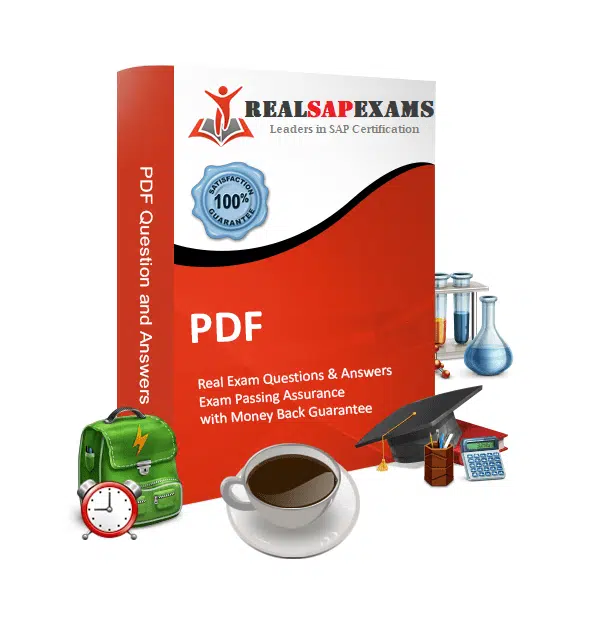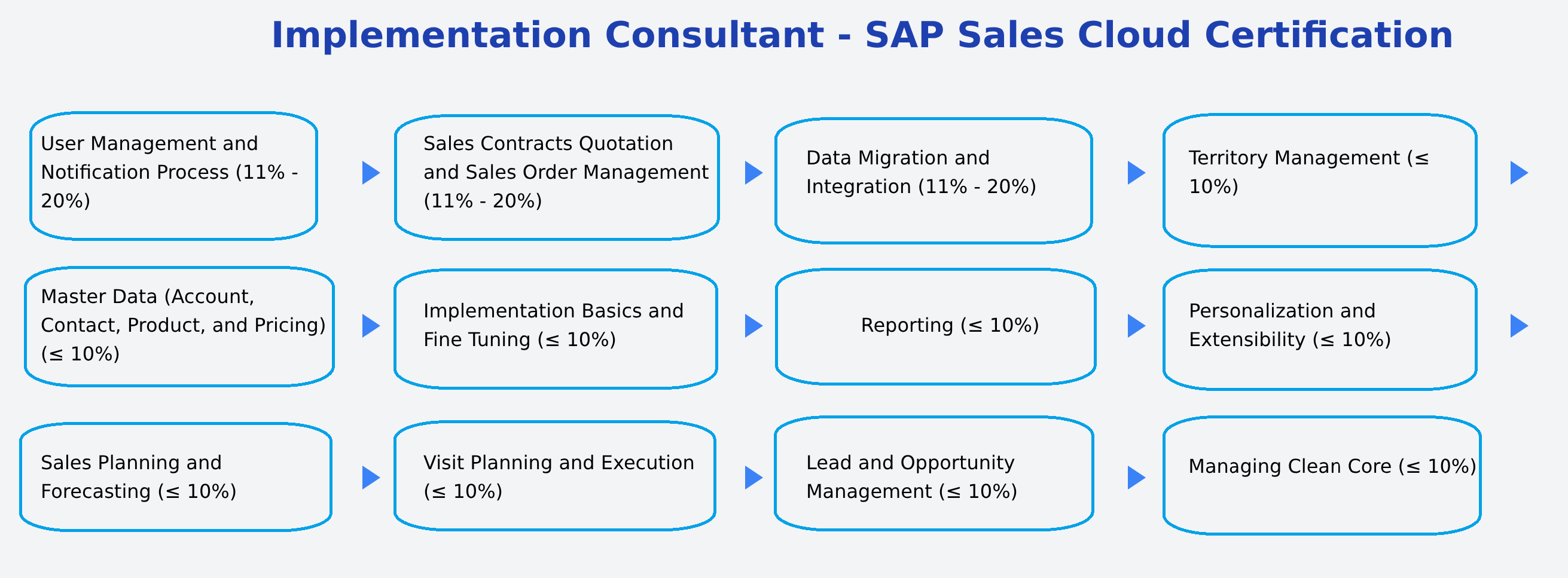
C_C4H410_21 – SAP Sales Cloud 2111 Certification
Master your HCM exam with our reliable SAP C_C4H41_2405 Certification. Each question is carefully crafted to reflect the format and difficulty of the actual SAP Sales Cloud Implementation Consultant certification exam. Our latest C_C4H41_2405 dump focus on real topics, helping you study efficiently and effectively. With clear explanations and fully updated content, you’ll feel confident walking into the test and passing it on your first attempt.
We offers exact Questions from an actual Exam.
Guaranteed Success in the first attempt.
We'll give you all your money back.
No questions asked.
All orders are Delivered instantly.
Once you will buy any of our products you will be subscribed to free updates for up to 90 days.
We Offers you 24/7 free customer support to make your learning smooth.
$79.00 $140.00
Hurry Up! Offer ends in:
C_C4H41_2405 – SAP Sales Cloud Implementation Consultant Certification
Overview:
- Level: Associate
- Exam: 80 questions
- Delivery Methods: Certification for Exam Preparation (PDF Format)
What is this C_C4H41_2405 certification about?
This certification shows that you have the essential skills needed to work with SAP Sales Cloud. This certification proves you understand the basics of being an Implementation Consultant. When you pass the C_C4H41_2405 exam, it means you can use your skills in real work situations. You’ll be ready to work on projects with guidance from experienced consultants.
This certification is perfect for people who want to start their career as Cloud consultants. The C_C4H41_2405 dump Q&A materials help you prepare for the exam by covering all the important topics you need to know.
Furthermore Rely on C_S4FCF_2021 Certification for comprehensive preparation, covering each section of the exam in detail to give you a strong foundation for success. Read more about SAP C_C4H41_2405

Topics Covered in the SAP C_C4H41_2405 Certification
Below is a complete list of topics that appear in this dump. These topics help prepare you for the Implementation Consultant – Sales Cloud role. Please note that may update content and topic weightings at any time.
User Management and Notification Process 11% – 20%
This section covers how to manage employees, assign business roles, and set up users in the system. You’ll also learn to create data restrictions and set up notification processes. The C_C4H41_2405 certification tests your ability to configure conditions and actions for automated workflows.
Sales Contracts Quotation and Sales Order Management 11% – 20%
Learn how to create contracts that follow from previous documents and build document flows. This topic also covers pricing setup, quotation creation, product suggestions, checking availability, and managing follow-up transactions for both quotations and sales orders.
Data Migration and Integration 11% – 20%
This area focuses on moving data using templates and the data workbench tool. You’ll learn to fix data migration problems and handle large amounts of data. The C_C4H41_2405 dump materials also cover pre-built integration options and best practices for connecting different systems.
Territory Management <= 10%
This section teaches you how to create territory structures and set up rules that automatically assign territories to sales representatives.
Master Data (Account, Contact, Product, and Pricing) <= 10%
Learn to set up pricing components for both internal and external price calculations. This topic also covers creating different account types and managing contact relationships between customers and businesses.
Implementation Basics and Fine Tuning <= 10%
This area covers the basic tasks needed to set up and manage Cloud. You’ll learn about implementation timelines, dependencies, and how to adjust default settings to meet specific business needs. This is a key part of the C_C4H41_2405 certification that you’ll need to master.
Reporting <= 10%
Learn how to use Microsoft Excel with Cloud reports. This section also covers the different parts of custom reports and interactive dashboards that help track business performance.
Personalization and Extensibility <= 10%
This topic shows you how to customize the system for different users and extend functionality using mashups and custom business objects.
Sales Planning and Forecasting <= 10%
Learn to create sales target plans using different categories and dimensions. You’ll also practice creating, updating, and submitting sales forecasts to track business goals.
Visit Planning and Execution <= 10%
This section covers planning customer visits and executing them effectively. You’ll learn to set up activities, manage visit schedules, and use surveys and tasks during customer meetings.
Lead and Opportunity Management <= 10%
Learn how to distribute leads automatically and set up aging notifications. This topic also covers creating opportunities, managing buying centers, and scheduling revenue from potential deals. This section is essential for the C_C4H41_2405 exam preparation.
Managing Clean Core <= 10%
This final section teaches clean core principles for ERP systems. These principles help businesses stay flexible, reduce customization efforts, and speed up innovation in their processes.
